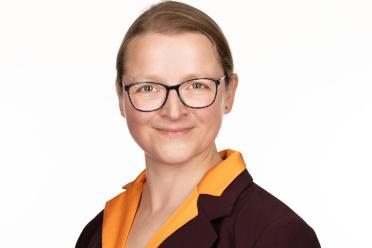
The two-year award will see serial entrepreneur Fiona Nielsen developing and delivering initiatives to support the translation of research and fostering an entrepreneurial mindset among the Institute’s staff and students.
The scheme aims to increase the knowledge and awareness in UK universities and institutes of cutting-edge industrial science, research, and innovation.
Having funded hundreds of placements across UK academic institutions since it was launched by the Royal Society in 2018, it also seeks to increase the understanding of business and entrepreneurship.
As the Institute’s first Entrepreneur in Residence, Fiona Nielsen will help to design and develop projects to upskill staff and students in some of the basics, such as identifying intellectual property, proposition development, market analysis, and networking skills.
Working closely with the Business Development and Impact team, she will run a series of seminars and interactive workshops for both research and operational staff. These are designed to boost knowledge and familiarity with the process of continuous innovation for commercialisation of products and services from the Institute.
She will also run an internal ideation competition to highlight and celebrate some of the best ideas for research commercialisation.
Dr Liliya Serazetdinova, Head of Business Development and Impact at the Earlham Institute, said: “There’s innovation in every part of the Institute, from developing new methods for sequencing single cells to developing computational models for predicting potential new therapeutic targets for disease.
“We have a hugely collaborative and multidisciplinary community of scientists, technical experts, and operational staff. We want to foster an entrepreneurial spirit that helps everyone recognise the translational potential of their work, and I’m excited to be working alongside Fiona as we progress along that journey.”
In April last year, the Earlham Institute announced its first spinout company, TraitSeq. The Royal Society award has the potential to be a catalyst for future spinouts and entrepreneurial activity.
“It’s a great moment in time for us to bring in an Entrepreneur in Residence,” added Dr Serazetdinova. “Having seen the success of TraitSeq, we hope it gets others thinking more broadly about routes to impact for their own work.”
Fiona Nielsen has a background in bioinformatics across life sciences, genomics, and big data.
She began her career at Illumina, developing tools to interpret next-generation sequencing data, before going on to found DNAdigest in in 2013, a charity promoting ethical data sharing.
Fiona founded Repositive, a spinout from DNAdigest, and later went on to lead - and offer consultancy to - a range of life science start-ups in the greater South East of England.
On the news of the award, Fiona Nielsen said: “I’m hugely excited to be working with the Earlham Institute as its first ever Entrepreneur in Residence.
“The primary goal is to create a culture that encourages innovation, is alive to new opportunities, and flags them to the in-house team who can help explore their potential.
“Not every idea is a spinout or new product, and not everyone wants to pursue commercial applications of their work. However, there are often great opportunities for positive societal impact uncovered when we take the time to explore potential applications for our science.”
Fiona Nielsen will formally begin the role in mid-February.


